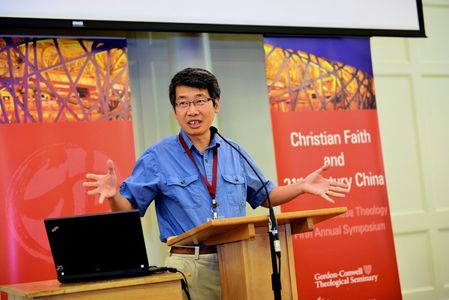John Berthrong reports on GCTS Christianity in China Conference
John Berthrong and Dana Robert from the CGCM and Dr. Esther Hu from the Department of English recently attended a conference at Gordon-Conwell Theological Seminary on Christianity in China. John Berthrong chaired a session and shares some observations below.
For the past few years the Gordon-Conwell Theological Seminary has hosted a fascinating conference on the state of Christianity in China. This year the focus was on Christianity and Chinese culture. It was a interesting mix of theological, sociological and historical reflections on the past and present state of the Christian churches in China. The papers were informative and genuinely frank about the mix of good and bad that arises in any discussion of Christianity in China.
I also discovered that language can be very opaque. For instance, now most people who study the church will talk about Protestant churches mostly, about registered, unregistered and urban churches. What will slip by anyone not paying attention is the reference to “urban” churches. It turns out that these are not just major urban versions of the registered and unregistered churches per se. The scene is much more complicated. When my colleagues talk about “urban” churches this is often shorthand for a new phenomena, namely the rise of a new kind of church in China’s burgeoning urban landscape. These are churches often founded by and for the rapidly emerging and highly educated urban professionals — what in North America we would call the highly educated new professional and business class emerging all over urban China. These people do not find a home in the older churches and prefer to found their own. They tend not to register with the state in some cases, but because of their social status, do try to establish good working relationship with the local officials. Because of their urban sophistication, they are again often successful in doing just this. One of the main reasons they form their own churches is that they want the same level of leadership for their churches that they expect in the rest of their lives, and they don’t seem to find this in the older churches. If you know anything about Chinese intellectual tradition, you will know immediately how important education is, and if the older registered and unregistered churches cannot provide a highly educated and sophisticated religious leadership, then these new urban churches will do so for themselves.
Of course, the religious scene is so fluid and dynamic in China these days it is almost imperative to check in once a year at this conference to take the temperature and try to fathom the changing dimensions of Christian life in China.
